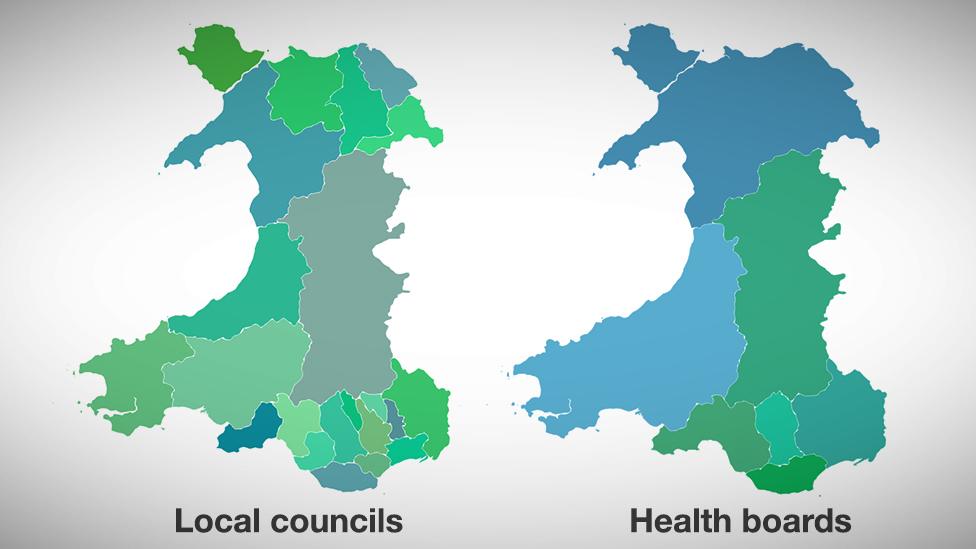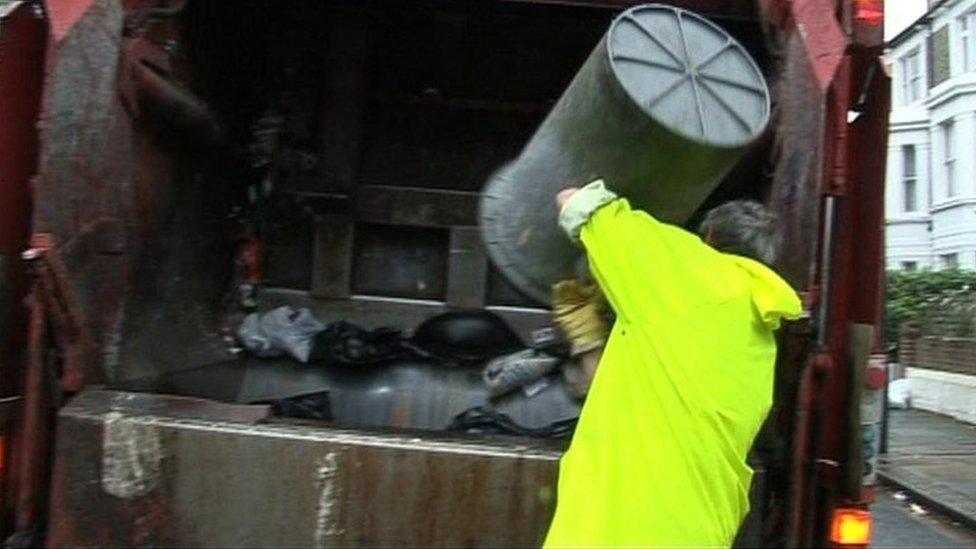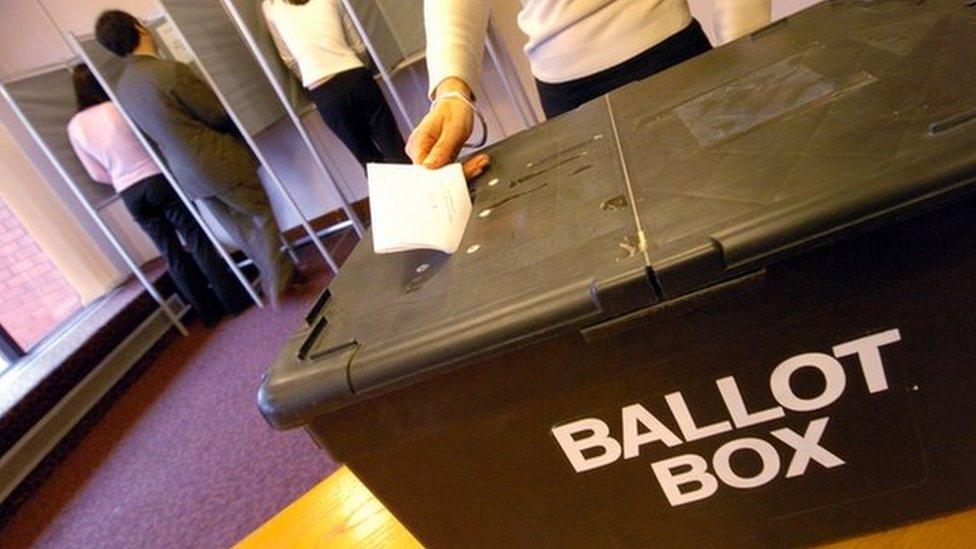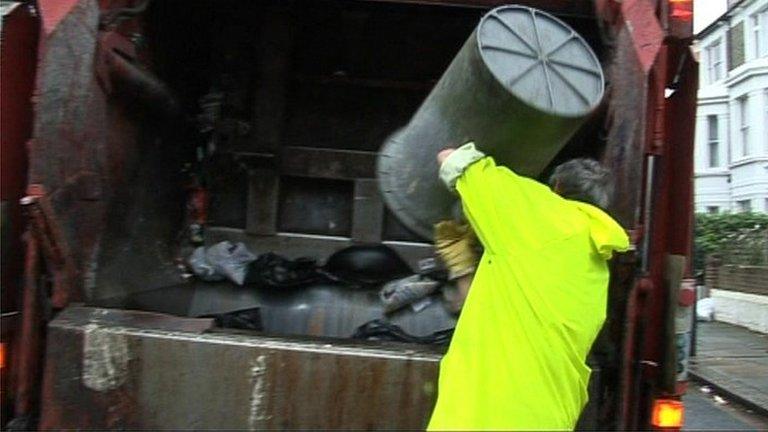Councils to run services regionally rather than merge
- Published

The 22 councils had been facing plans to merge to as few as eight or nine authorities
Welsh councils will be asked to work together to deliver key public services on a regional basis, Local Government Secretary Mark Drakeford has said.
It comes after he dropped merger plans to cut 22 councils to eight or nine.
The 22 councils will remain as the "democratic tier" of local government, but "concerted collaboration" will be expected, the minister told AMs.
Former Cardiff council leader Russell Goodway warned of an "unfortunate fudge" creating unaccountable services.
Social care, educational improvement and educational improvement could be pooled along health board boundaries, with regional co-operation likely in transport and planning.
Mark Drakeford says he wants to rationalise how councils work
In a Senedd statement, Mr Drakeford said the plan would be to retain existing local authorities as the "front door" through which people access services, but with key services being delivered regionally.
"This will give local authorities more resilience in terms of staffing and finance and also ensure that services are planned and delivered on the right scale," he added.
Transport, planning and economic development could be run on a city region basis, while education improvement and social services could be aligned to health board boundaries, Mr Drakeford said.
He added that any councils wanting to "build their resilience further by voluntarily merging" would be supported to make it happen.
Further talks with councils, unions and other interested parties would take place leading to a "viable way forward" by the new year.
Ahead of the announcement, former Cardiff council leader Russell Goodway branded it as an "unfortunate fudge" and "the worst of all possible worlds".

"You're going to have seven indirectly elected local authorities instead of eight or nine directly elected," he told BBC Radio Wales, referring to co-operation within health board boundaries.
Speaking on Good Morning Wales, he said: "They're not directly accountable to the people that they serve - the voting public can't sack them because they don't know really who is in charge here.
"When you've got responsibilities like education and social care, there needs to be a direct relationship between those who are making the decisions and those that are receiving the service."
Dominic MacAskill, the trade union Unison's head of local government in Wales, said it was "sensible" for regionally-shared services to follow health board boundaries.
But he added that council workers and the public "want the assurance that councils will have the ability to deliver quality public services with a directly employed workforce and that people will have a democratic say over how services are provided".
Plaid Cymru's Shadow Local Government Secretary Sian Gwenllian accused Labour of "characteristic dithering" over the issue, but welcomed the prospect of a "U-turn" by scrapping plans to force "unpopular mergers".
She said her party wanted to see councils co-operate under a regional model, but claimed the plans to integrated health and social care were "not clear".
"Plaid Cymru wants to see them developed further in order to deliver a seamless service for patients," Ms Gwenllian said.
Welsh Conservative spokeswoman Janet Finch-Saunders said: "We need to be having a serious conversation about what services local authorities will be asked to provide in future and then develop a system to fit.
"Once again they're doing things the wrong way around."

Analysis by Nick Servini, BBC Wales political editor
The one clear advantage of this latest plan to reform councils will be the argument that it is achievable.
Proposals to dramatically cut the existing 22 local authorities to single figures proved to be overly ambitious for the previous Labour administration.
This is likely to have far greater cross-party political appeal at the Senedd, and will go down well with the councils themselves and the unions as it won't involve large-scale redundancies and upheaval.
The criticism will revolve around question marks over accountability and simplicity.
If the new regional partnerships are not judged to be performing well, how do you get rid of them?
It will also create an added tier of government, and inevitably greater complexity to a system that it is already unfathomable to many.
A final thought: if new joint cabinets are effective it will surely be a matter of time before people start asking the question about why there needs to be 22 separate local authorities.
And then we end up back where we started.
- Published8 September 2016

- Published12 June 2016

- Published27 May 2016

- Published23 May 2016

- Published16 December 2015

- Published11 June 2015
